Is Styrofoam Good For Soundproofing?
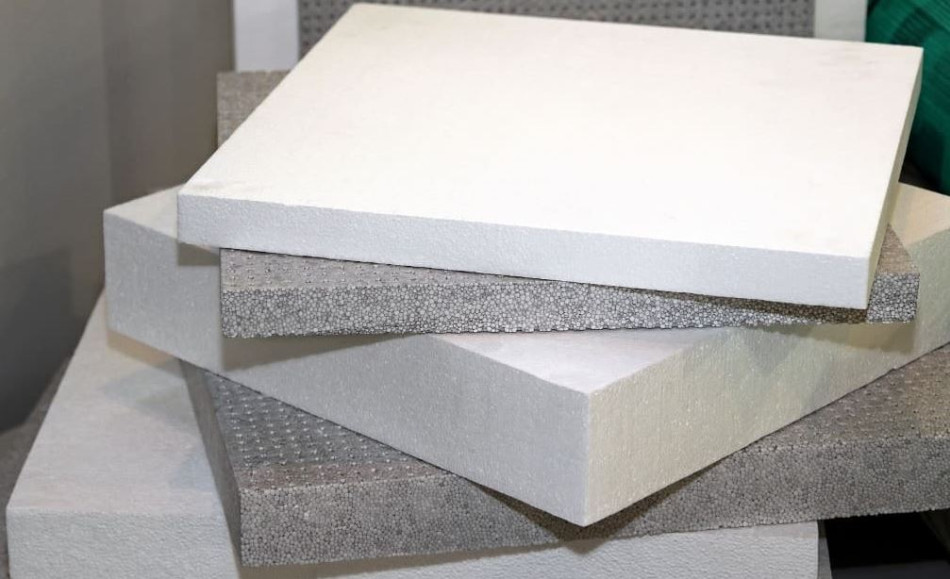
If you’re seeking a way to soundproof your home or apartment, you may have come across styrofoam as a possible option. Although styrofoam can effectively reduce noise when combined with other soundproofing materials, it alone may not provide good results.
Hence, when pondering whether styrofoam can be used as a soundproofing material, it is crucial to remember that it is merely a portion of the equation. While styrofoam can dampen sound, it is more effective when paired with other materials with more mass and density. In this article, we’ll talk about that. So, let’s start!
Is Styrofoam Good For Soundproofing? Styrofoam is not a good soundproofing material. Although Styrofoam can provide some degree of sound absorption in combination with other soundproofing materials such as drywall or fiberglass, it is not very effective at reducing sound transmission if used alone.
Styrofoam (also known as Polystyrene foam) possesses thermal qualities similar to fiberglass and is widely utilized as a lightweight, shock-absorbing, and insulating material in various packaging and insulation products.
Styrofoam is a type of expanded polystyrene foam (EPS) commonly used as a packaging material due to its lightweight and insulating properties. However, its soundproofing ability is limited because it is a hard and rigid material that does not absorb sound waves well. Additionally, it can be easily damaged and broken down over time, reducing its effectiveness.
First, What Is Styrofoam?
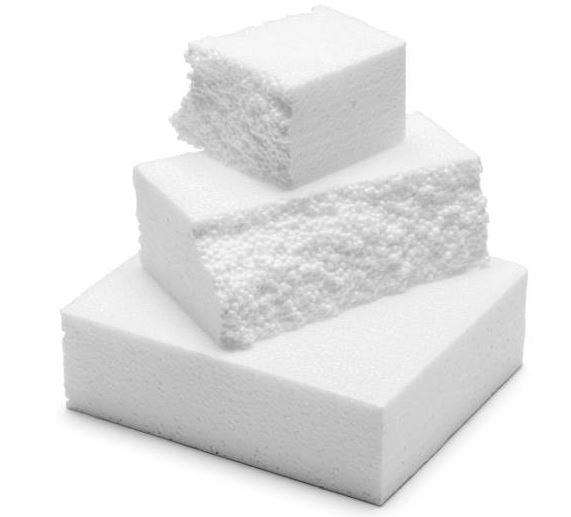
Styrofoam is a trademark name for a type of polystyrene foam, a petroleum-based plastic. It is renowned for its exceptional convective qualities and poor heat conductivity. This is due to the numerous small air pockets that restrict the transfer of heat energy. This material is particularly useful for maintaining heat inside buildings.
Is Styrofoam A Good Insulator?
Insulators like Styrofoam can reduce energy flow, while conductors like metal allow energy to flow easily. Other materials, such as air and glass, are also good insulators. Wearing multiple layers of clothing works well to stay warm in cold weather because each layer traps air and reduces heat loss. This principle also applies to other objects, including buildings and cups of coffee, making Styrofoam a very good insulator.
Does Styrofoam Soundproof?
Although Styrofoam has good insulation properties, it does not have good soundproofing properties. It is very light, and due to the lack of mass, it cannot be a good soundproofing material.
However, it can significantly reduce sound transfer when combined with materials like drywall or concrete. In addition, it can also break down over time and release harmful particles into the air.
There are much better materials specifically designed for soundproofings, such as acoustic foam, fiberglass, and drywall, which are more effective at reducing noise and improving acoustics. When determining whether a product is suitable for soundproofing, there are four key elements to consider.
Related Article: Does Cardboard Absorb Sound? Expert Explain
7 Best Styrofoam Alternatives For Soundproofing
While Styrofoam panels can slightly reduce sound in a room, they are not a good option for soundproofing. In addition to its limitations in soundproofing, Styrofoam can also negatively impact the environment. Manufacturing Styrofoam involves releasing hydrocarbons into the air, which can contribute to air pollution.
Additionally, there are several good alternatives available that can be used instead of Styrofoam. Here are some of them:
1. Fiberglass
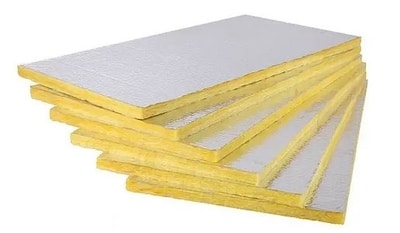
Fiberglass is a great option when it comes to soundproofing. These products generally come in slab form and can be easily installed in homes, apartments, and commercial buildings. Fiberglass is an effective material that blocks noise from entering or leaving a room while also enhancing the internal acoustics of the space. Various types of fiberglass are available in the market, allowing users to choose the type that best suits their soundproofing needs.
2. Resilient Channels
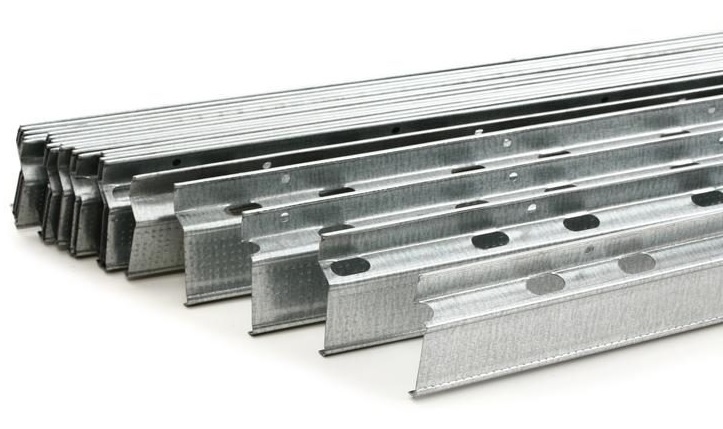
Resilient channels are a widely-used option for enhancing the acoustic performance of buildings. These channels offer the benefit of separating drywall from a building’s internal structures, resulting in superior soundproofing compared to Styrofoam.
Combining resilient channels with acoustic hangers can reduce vibrations, making it a much better soundproofing solution.
Thanks to the decoupling properties of resilient channels, any sound that goes through them will be isolated from the rest of the room. For this reason, resilient channels are a great choice for anyone seeking optimal soundproofing results for their building or renovation project.
Related Article: Does Aluminum Foil Block Sound? Explained
3. Acoustic Hangers

Thanks to their design, acoustic hangers effectively reduce noise by isolating the sound source from the rest of the structure. These hangers are typically utilized in ceilings, and walls to impact noise. For effective soundproofing options, acoustic hangers are a great alternative to traditional materials such as Styrofoam.
The great thing about acoustic hangers is that they provide optimal acoustic control by preventing sound from traveling through walls or ceilings. They are an excellent choice for anyone looking to improve the sound quality in their space.
4. Sound Absorber Panels
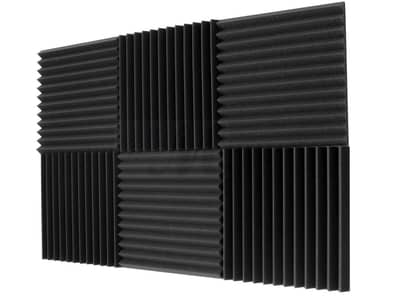
> Buy Sound Absorber Panels HERE <
Sound absorber panels are a great option for improving sound quality in a space. These panels are designed to be mounted on the ceiling, where they reduce sound reverberation. While acoustic panels can be costly, they offer significant benefits when installed properly. Therefore, they are incomparably better than Styrofoam for soundproofing.
It is essential to make precise calculations during installation to achieve maximum efficiency. Fortunately, many types of sound absorber panels are available on the market, including those in various appealing colors that can enhance the aesthetic appeal of any room.
In addition to their functional benefits, sound absorber panels are a smart investment for anyone seeking to create a comfortable and well-balanced acoustic environment. With their ability to absorb sound, these panels can make a significant difference in the sound quality of a space, making them an ideal choice for your home.
Related Article: Are Egg Cartons Good For Soundproofing?
5. Sound Absorbing Ceiling
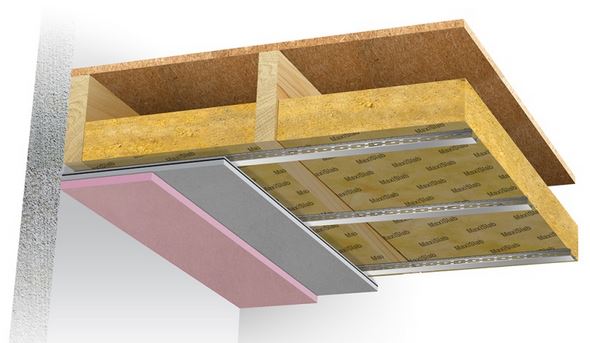
Implementing a ceiling or drop ceiling with a grid system can be good for soundproofing a room. Tiles are essential in any building, but making the right selection can ensure enduring advantages without exceeding your financial capacity. Therefore, this is a great solution to avoid using Styrofoam.
You can choose from a diverse range of materials, depths, and designs for tiles and ceilings, and make a convenient solution to enhance the sound quality of any area.
6. Soundproof Floor Mats
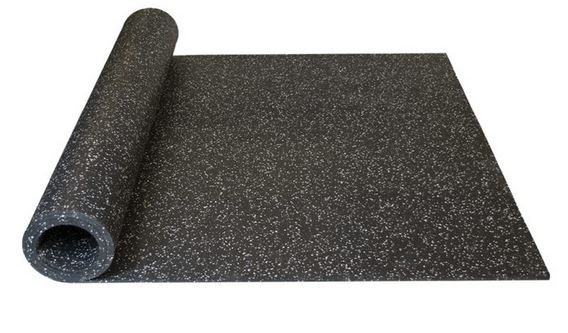
> Buy Soundproof Floor Mats HERE <
Soundproof floor mats are a budget-friendly option and can also be used to soundproof your room. These anti-vibration mats are designed to absorb and dampen vibrations and noise, providing a peaceful environment in your home.
They can be used inside appliances, as well as in cars, to reduce noise and vibrations. In addition, several companies provide acoustic absorption solutions to minimize unwanted sound reflections and enhance the overall audio performance of a room or surface.
Related Article: Is Spray Foam Good For Soundproofing?
7. Art Acoustic Panels

> Buy Art Acoustic Panels HERE <
Custom-made art acoustic panels are perfect for controlling noise in any environment. The panels are crafted from compressed mineral wool, allowing them to absorb sound waves effectively. The great thing about these panels is they are an environmentally friendly alternative compared to traditional styrofoam panels.
Another benefit is that they add a touch of elegance to your space and provide effective soundproofing without spoiling the aesthetics of your room. These panels are designed to absorb sound waves, making them an ideal solution for any soundproof space.
For those who want to learn more about soundproofing, be sure to watch this YouTube video:
How Much Soundproofing Can Styrofoam Provide?
Styrofoam is not a reliable solution for soundproofing, and its sound reduction capabilities will be limited if used alone. It is more effective as a sound absorber and should be used alongside other materials for the best outcome.
Although Styrofoam may offer some level of soundproofing when used alone, its performance will be comparable to other sound-absorbing materials such as cotton or sponge. Nonetheless, using it for sound absorption can give some good results.
Final Thoughts
As explained in this article, styrofoam is not a good sound insulator and should not be used for soundproofing. It only provides moderate C-class soundproofing outcomes.
Although Styrofoam is not an effective soundproofing solution when used alone, it can work wonders in sound absorption when combined with other soundproofing materials. Therefore, it should be noted that while Styrofoam has some sound absorption qualities, it is not a sufficient solution for soundproofing purposes.
